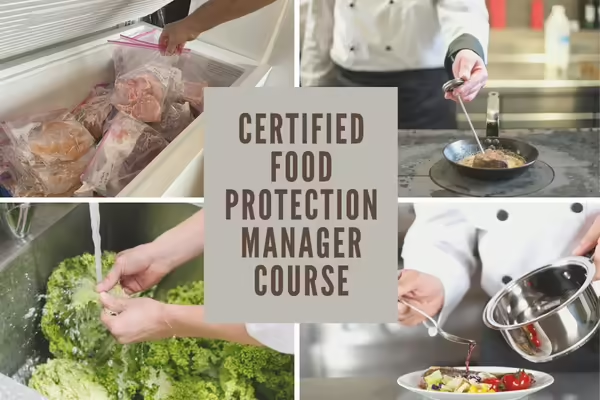
Are you currently working in the food industry or seeking a position in this field? Consider becoming a Certified Food Protection Manager (CFPM)! The Illinois Department of Public Health mandates that managers of retail food establishments obtain an American National Standards Institute (ANSI) accredited CFPM certificate to ensure consumer safety when dining out.
This certification equips participants with essential training in safe food handling, preparation, and storage, helping to prevent foodborne illnesses. The CFPM certificate is valid for five years and must be renewed upon expiration.
The University of Illinois Extension is offering the CFPM course on Tuesday, December 3, from 9:00 AM to 3:00 PM and Friday, December 6, from 8:30 AM to 3:00 PM at Stephenson County Farm Bureau, 210 W. Spring Street, Freeport, IL. Attendance for both days is required to qualify for the exam. Please bring a valid photo ID and plan to arrive 15 minutes early for check-in.
The program fee is $125, which includes educational materials, the exam, and lunch. Due to limited space, preregistration is required. To register, call U of I Extension at (815) 235-4125 or visit us online.
For individuals needing reasonable accommodations to participate in this program, please contact the U of I Extension at (815) 235-4125. We encourage early requests to ensure we can meet your access needs.
University of Illinois Extension develops educational programs, extends knowledge, and builds partnerships to support people, communities, and their environments as part of the state's land-grant institution. Extension serves as the leading public outreach effort for University of Illinois Urbana-Champaign and the College of Agricultural, Consumer and Environmental Sciences in all 102 Illinois counties through a network of 27 multi-county units and over 700 staff statewide. Extension’s mission is responsive to eight strategic priorities — community, economy, environment, food and agriculture, health, partnerships, technology and discovery, and workforce excellence — that are served through six program areas — 4-H youth development, agriculture and agribusiness, community and economic development, family and consumer science, integrated health disparities, and natural resources, environment, and energy.